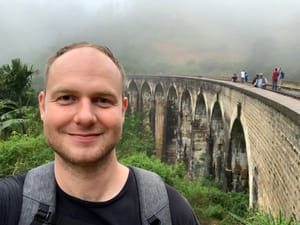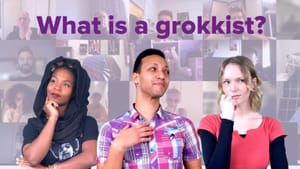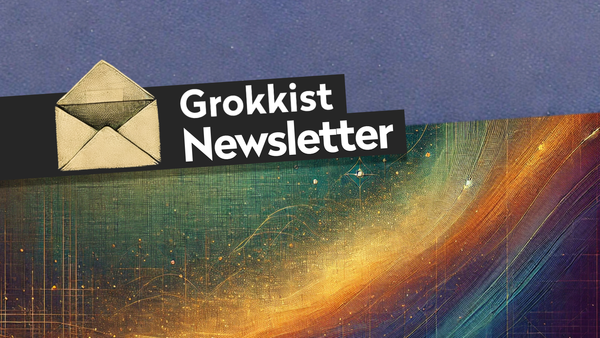Aaaand we're back for 2023. A special welcome to my new readers and a warm welcome back to everyone else. You're reading Scholé Supplement, the bi-weekly newsletter that celebrates curiosity, learning and life as a grokkist.
Unfortunately I didn't end up putting out the final issue last year as I ended up with covid, which had me laid low for a while. All better now though. I hope the end of year holiday period was a restful and restorative one for you.
Since starting this project last year, I continue to be humbled and inspired by the people I meet and the conversations in which I find myself.
This year, as I continue my attempts to create an online playground for grokkists, my overarching goal will be to create meaningful opportunities for connection and community.
🌴 Danu's take on ChatGPT and education
❤️🔥 We have two grokkable cohort-based experiences kicking off this month
🎙 A squiggly story of an unplanned career in science leadership
🍬 Down in Snackables you can try a purpose-washing podcast, find out why no-one owns an important part of the most popular game of all time, and discover the strange history of airport codes
🌴 Chatting on the shoulders of giants
“The best moments in reading are when you come across something – a thought, a feeling, a way of looking at things – which you had thought special and particular to you. Now here it is, set down by someone else, a person you have never met, someone even who is long dead. And it is as if a hand has come out and taken yours.”
― Alan Bennett, The History Boys
Writing is powerful because it allows we humans to pass our ideas down through time, such that later readers may sit in the shade of trees others planted long ago.
Writing is a technological gift to humankind, but reading is a political one.
As ordinary people, we take our capacity and freedom to read for granted, along with our ability to access more or less whatever reading material we could want.
But reading used to be a rare and elite pursuit considered unsuitable for the masses. There are complicated and bloody historical reasons why reading ended up in the hands of ordinary people (see The Reformation), and the fact that it did was by no means a sure thing. History only looks inevitable in hindsight.
500 years later, as I dick about with ChatGPT on my laptop over coffee, I can't help but think that with the latest proliferation of generative AI tools, we hold in our hands gifts on a similarly significant historical scale.
Right now there’s a lot of people picking over the details of what ChatGPT is and isn't and what it currently can and can’t do, and certainly a lot of tactical chatter in professional education circles about whether it’s a threat or an opportunity and what it means for plagiarism and so on.
All well and good. But let's zoom out.
I see ChatGPT as a thinking partner. It offers the transcendent possibilities of a reading encounter, but instead of just stumbling across what a dead author had to say and it blowing your mind, now you can also have a conversation with them about it afterwards.
In fact, you can have a conversation with the whole corpus of human knowledge in unison, ask whatever you want, and request for the answers to come back in whatever way takes your fancy.
It's a sort of synthesis both at speed and at scale.
Grokkists will be pleased – drinking in understanding by communing with knowledge in its aggregated entirety is, after all, what grokking is all about.
Of course, you’d be wise not to simply accept what ChatGPT gives you at face value or rely on it uncritically for matters of any real importance, but that advice goes for anything, not just ChatGPT.
Because the output ChatGPT produces comes by way of many authors but is also by no-one, the ‘ownership’ of the knowledge it generates becomes much murkier. What happens when you mix ChatGPT's labour with your own?
ChatGPT certainly does not resolve questions of authority or legitimacy in knowledge and expertise or make the task of knowing which information to trust information any easier, but why should it? Those problems are as old as writing and reading are themselves.
It is also not a replacement for people who teach and guide others in a learning relationship, whose services and expertise are likely to be more valuable than ever.
But ChatGPT does represent a full-throated challenge to the gatekeepers of those learning relationships – the institutions of education – and their continuing authority.
If ordinary people can have ready access to ChatGPT as a thinking partner in their own familiar vernacular, they may wonder why they need the priests of schooling and academia to determine and administer what thinking looks like.
As such, I'd say we are likely to see further disintermediation and diminishing of educational institutions and their cultural capital – a trend that’s been gathering pace for a while now.
And as long as educational institutions continue to be more preoccupied with passing tests than learning, they are unlikely to see much need to fundamentally change what they do, even as they drift ever further out of touch.
As Principal Skinner would say after a rare moment of self-reflection, 'no, it is the children who are wrong.'
Generative AI is a technological gift to humankind, but for ordinary people to have access to an AI-powered thinking partner is a political one.
Assuming that tools like ChatGPT become everyday commodity technology and do manage to remain largely public and accessible (which history does not guarantee), this can only be a civilisational boon for people who make a conscious choice to own their education.
Let us hope that one day those who sit in the shade of trees we are now planting will be able to take it for granted.
Reimagine Education Project
Visit the Reimagine Education hubWe have two grokkable cohort-based experiences kicking off this month!
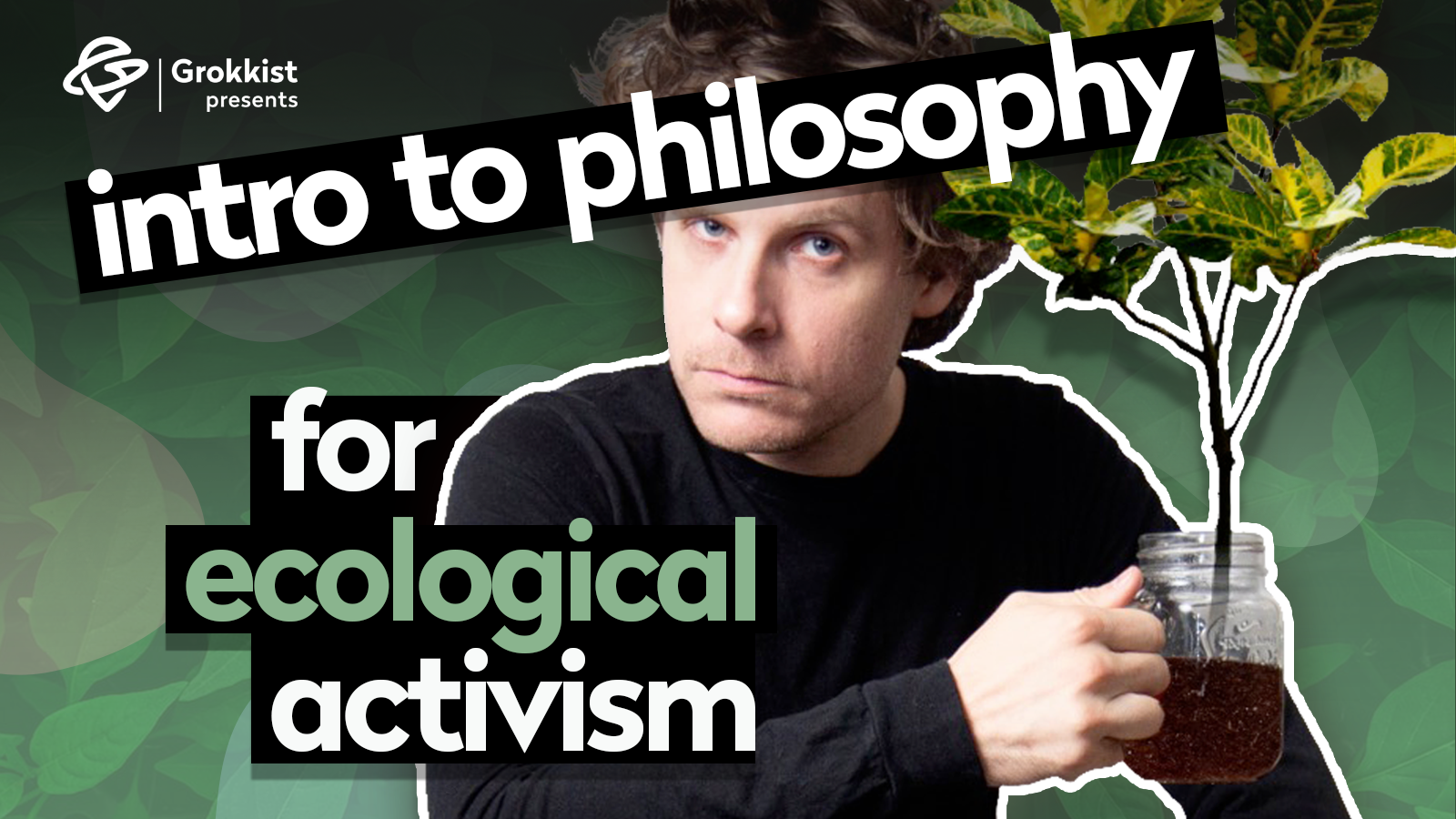
Nathanology is conducting an experimental philosophy course, and you're invited!
We know we want to ‘save the Earth’ — but what are the concepts underlying our environmental thinking? What is ‘Nature’? What is ‘Ecology’?
It's a four-session bi-weekly course exploring Ancient and Modern philosophical conceptions of Ecology, and culminating in a participant-led activism project.
This 3-minute invitation video will give you a good idea what to expect...
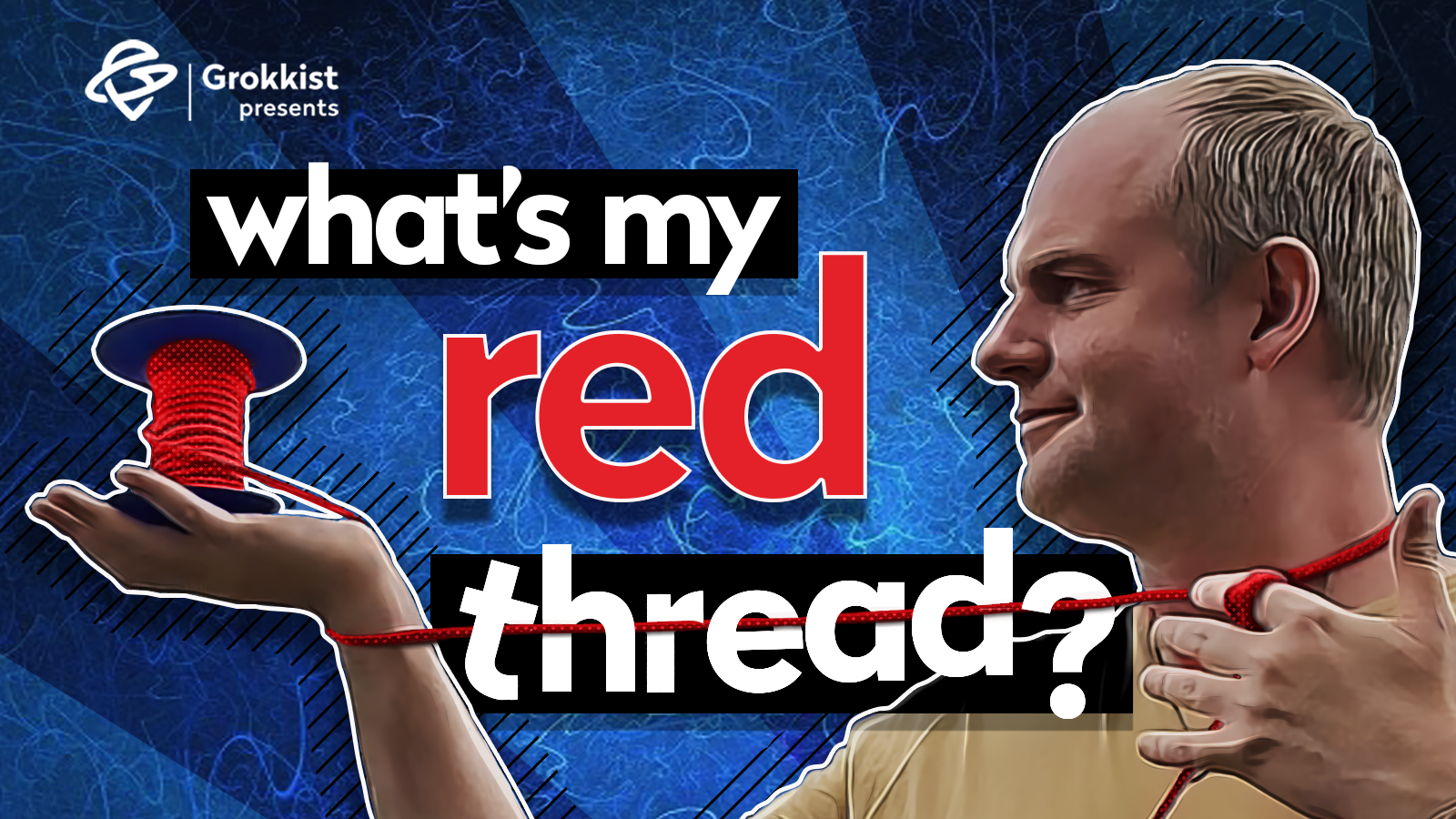
Grokkists tend to live episodically. If our lives were a TV show, it would probably be one of those anthology shows where the whole cast, plot, and setting changes regularly.
A grokkist’s true value springs from the squiggly and unrepeatable path we’ve taken. It rests in the unconscious synthesis of all the tacit knowledge and practical wisdom we’ve accumulated along the way.
Finding our Red Thread is an act of clarity and consciousness. It involves adopting a more fully-integrated mental model that helps us understand what truly lights us up and moves us into action.
Through a guided, playful and energising journey of self-reflection, together with other grokkists we will create a safe and hospitable space to develop and deepen our collective self-understanding.
🎙Still Curious Podcast
Featured Episode
New episodes are on the way!
Meanwhile, enjoy this freshly prepared digest of my Season 2 conversation with Maxine Bryant, where we talk about having an unplanned career and what's involved in leading science teams.
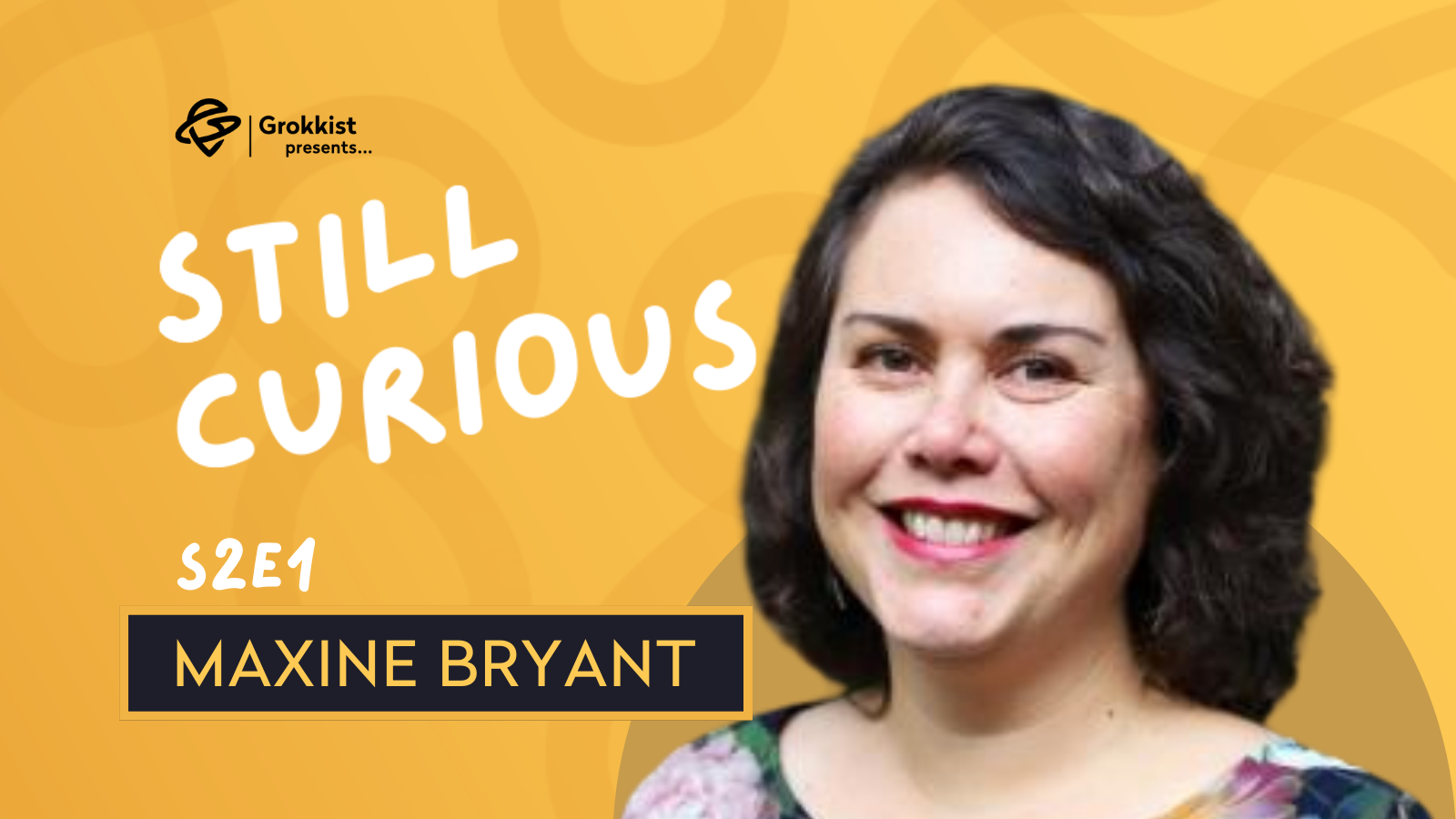
Key Topics
- The business of science, why research management isn't anybody's Plan A, and what happened when Maxine decided to step off the treadmill of life as a scientist.
- How Maxine follows what interests her while going with the flow, and how opportunities arise from others recognising her abilities before she did
- What's involved in leading science teams and how Maxine's relationship-based leadership approach is influenced by her cultural heritage
Detours and Tangents
- The complexities of Māori engagement in science and why Māori scientists work a cultural double-shift
- Maxine's interest in molecular genetics and why she chose to study the genetics of pāua (a Haliotis mollusk)
- The joys and discoveries of changing jobs after a long period in one place
🍬 Snackables
Assorted awesome links, just because.
If you replace every part of an object piece by piece, is it still the same object afterwards? This is the famous 'Ship of Theseus' thought experiment. In this video, boatbuilder Leo painstakingly actually does restore a 1910 Gaff Cutter piece by piece, while musing on the Ship of Theseus idea. Come for the restoration, stay for the philosophy.
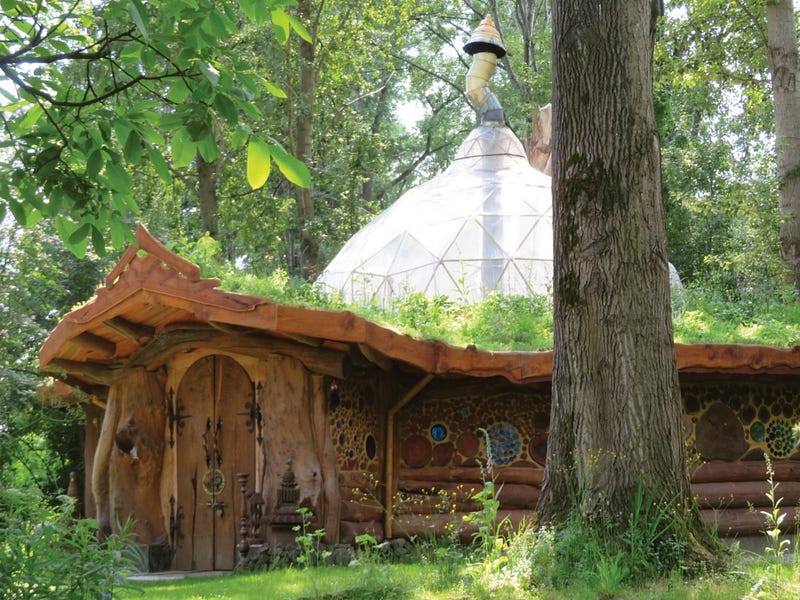
And the universe said I love you. If you complete Minecraft (the most popular video game of all time) by eventually defeating the Ender Dragon, you will be rewarded with the End Poem as part of the closing sequence. It's a quirky and uplifting piece of writing that means a lot to many people. But the story of how the End Poem came to be, and who owns it, is even quirkier and, depending on your perspective, possibly just as uplifting. Read if you have any interest in the gift economy or the tensions between making art and making money. (🙏🏼 thanks to Doug B)
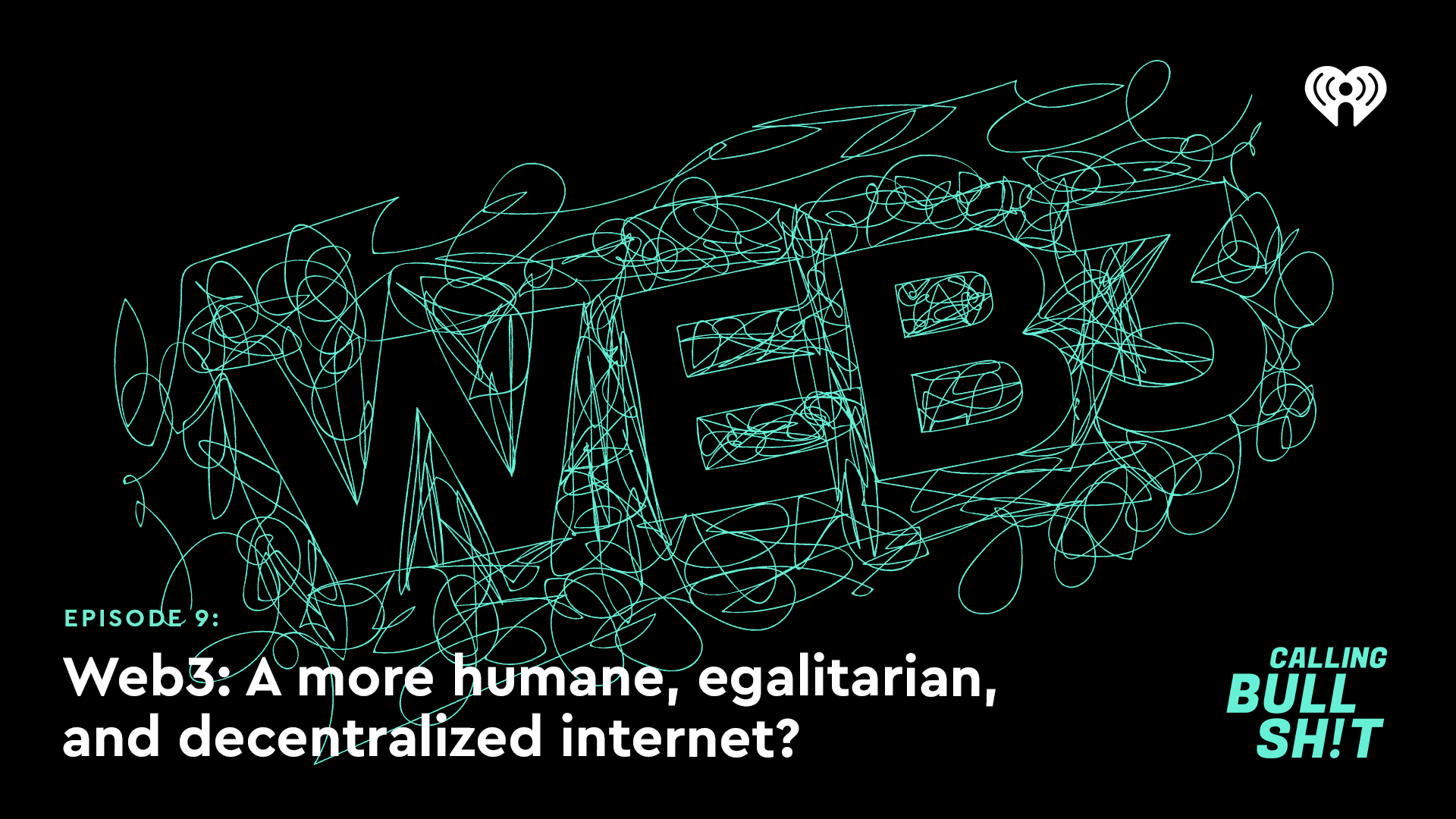
A podcast that explores 'purpose-washing' – the gap between what companies say, and what they actually do. Each episode does an in-depth review of a particular company, product or service and gives it a score on the bullshit meter, before convening a panel to discuss what could be done to close the gap and actually deliver on the purported purpose. I enjoyed the episodes on Noom and Allbirds and this one is now in my regular rotation. (🙏🏼 thanks to Sam H)
CGP Grey is a well-known YouTuber who makes thoughtful explainer videos on the interaction between humans and systems. His video on 'how machines learn' from several years ago really helped me understand machine learning, but I have a particular soft spot for his obsessively-prepared videos on extremely obscure topics, like the one featured here on the history of airport codes, or this one on the numbering system for US interstate highways, or the most efficient way to board an airplane.

HistoryMaps lets you visually explore timelines of historical events and processes using maps, with this elegant mashup of Wikipedia, MapBox and OpenStreetMap. There's a fulsome selection here from Ancient to Late Modern history, including a visual history of Buddhism's spread throughout the world and a detailed rundown of World War II.

